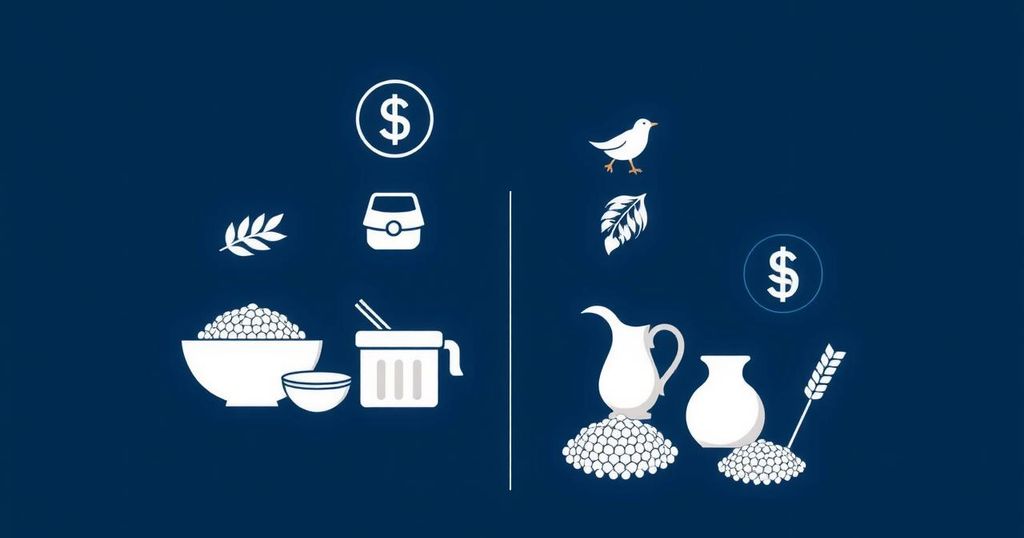World news
AMERICA, ASIA, CANADA, CURRENT_AFFAIRS, DONALD TRUMP, ECONOMICS, EU, EUROPEAN UNION, FOOD INDUSTRY, INDIA, JAPAN, KA, KAROLINE LEAVITT, LEAVITT, MAGA VOICE, MAGAVOICE, NATIONAL SECURITY, NORTH AMERICA, POLITICS, SOCIAL MEDIA, TRUMP, UNION, UNITED STATES, US, WASHINGTON, WHITE HOUSE, WHITE HOUSE PRESS
Stella Nguyen
0 Comments
White House Details Trump’s Tariff Plans as Trade Barriers Strain U.S. Exports
The White House confirmed no exceptions on reciprocal tariffs that President Trump plans to announce on April 2. Spokesperson Karoline Leavitt highlighted unfair tariffs from various countries, asserting the need for change. A report detailing foreign trade barriers was also released, which may influence Trump’s tariff plans aimed at protecting American workers and businesses.
The White House has confirmed that there will be no exemptions on the reciprocal tariffs proposed by President Donald Trump, scheduled to be announced on April 2, designated as “Liberation Day.” Press spokesperson Karoline Leavitt emphasized the need to terminate unfair trade practices and stated that the tariffs would target specific sectors, while aiming for a country-based approach as well.
Leavitt presented figures indicating exorbitant tariffs imposed by various nations, such as a 700% tariff from Japan on rice, a 50% tariff from the European Union on American dairy, and a 100% tariff from India on agricultural products. She described these tariffs as detrimental to American businesses, asserting that they significantly impair the import of U.S. goods and contribute to economic hardship for American workers.
The reciprocal tariffs proposed by President Trump are intended to counterbalance the tariffs imposed by other countries, which endanger U.S. exports. Furthermore, Leavitt claimed that these new measures would bring transformative changes to trade relations, criticizing foreign countries for taking advantage of the U.S. economy for too long and expressing a commitment to prioritize American workers.
In conjunction with the tariff announcements, the Trump administration released a comprehensive report outlining the foreign trade barriers inhibiting U.S. exports. The report, developed by the Office of the U.S. Trade Representative, details high tariff rates and various non-tariff barriers across numerous countries that complicate trade for American exporters.
Among the significant barriers noted are excessive regulations, such as stringent EU requirements for food safety and agricultural import standards, along with Canada’s restrictive dairy pricing system. The implications of this 397-page report on Trump’s tariff strategy remain uncertain, but it underscores the administration’s focus on addressing and rectifying these challenges in international trading.
In conclusion, the White House’s announcement regarding President Trump’s forthcoming reciprocal tariffs highlights the ongoing issues faced by American exporters. With substantial tariffs imposed by various foreign countries, the administration aims to restore fairness in trade relationships. The newly released report detailing foreign trade barriers further emphasizes the need for reform, suggesting a proactive approach towards improving conditions for American businesses and workers in the global market.
Original Source: www.ndtv.com




Post Comment